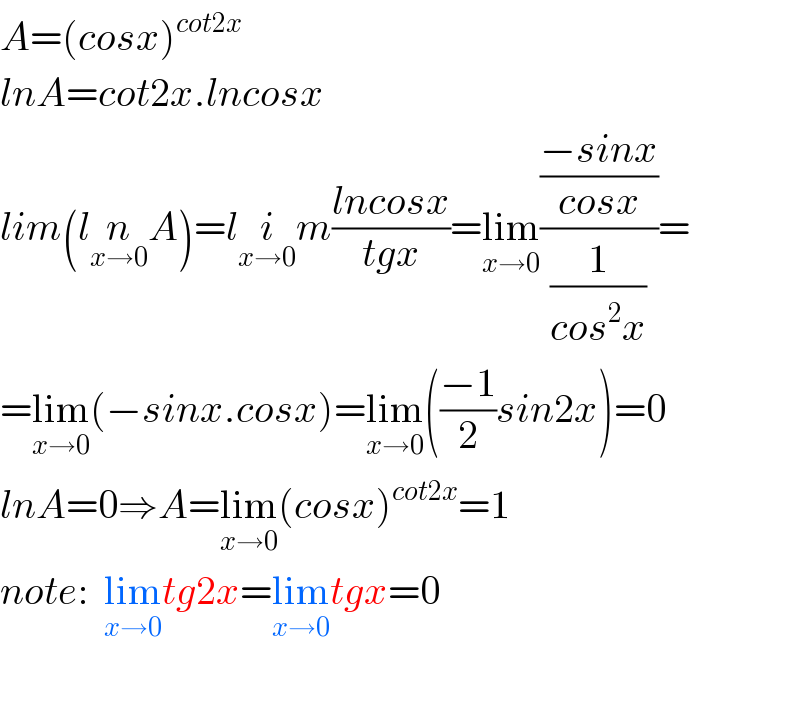
Question and Answers Forum
Question Number 14336 by tawa tawa last updated on 30/May/17

Commented by ajfour last updated on 30/May/17
![cos x=1−(1−cos x) =1−2sin^2 ((x/2))=1−t lim_(x→0) (cos x)=lim_(x→0) [(1−t)^(−1/t) ]^(−tcot 2x) =lim_(x→0) (e^(−tcot 2x) )=lim_(x→0) e^(−y) lim_(x→0) y=lim_(x→0) [tcot 2x=(2sin^2 (x/2))(((cos 2x)/(2sin (x/3)cos (x/2)))) so lim_(x→0) y=0 hence lim_(x→0) (cos x)^(cot 2x) =e^(−lim_(x→0) y) =1 . (perhaps only right hand llimit ) .](Q14339.png)
Commented by tawa tawa last updated on 30/May/17

Answered by b.e.h.i.8.3.4.1.7@gmail.com last updated on 30/May/17

Commented by tawa tawa last updated on 30/May/17

